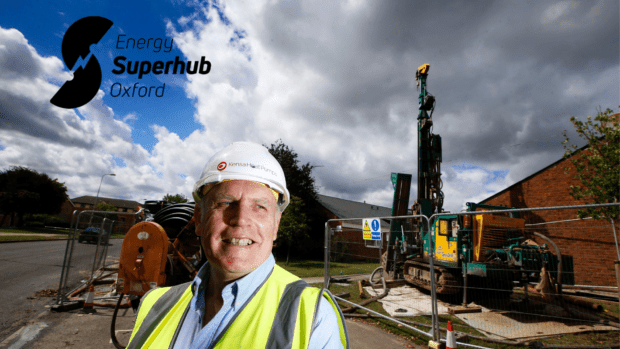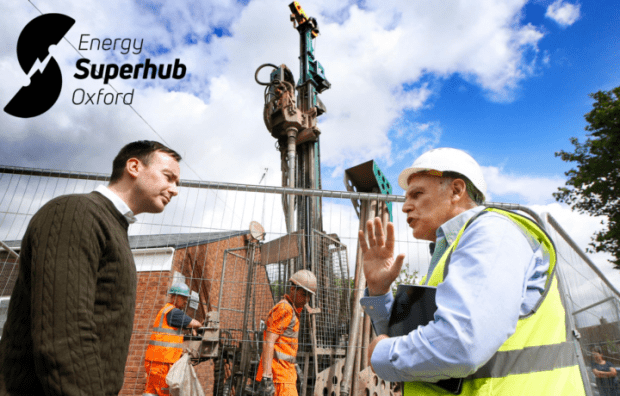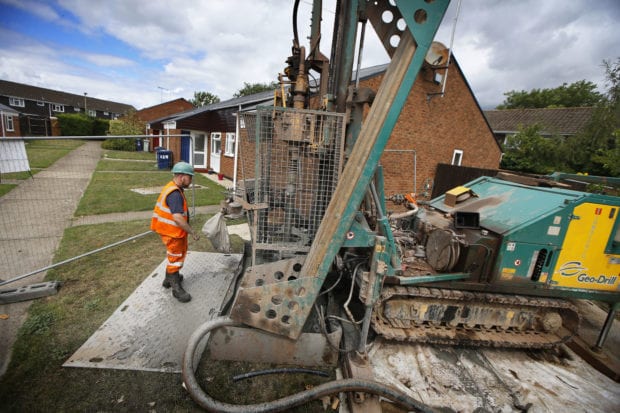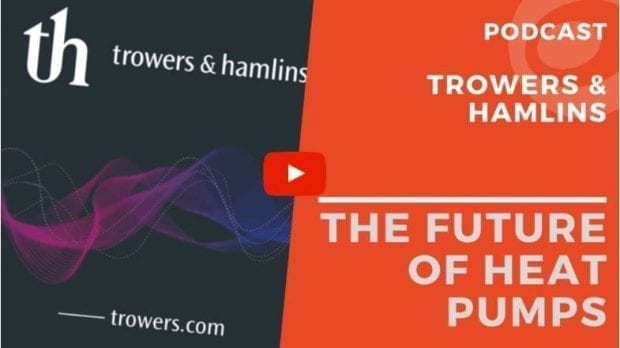The BBC reports from the pioneering smart-city already leading the green revolution with ground source heat pumps
The Prime Minister’s 10-point plan is set to put the UK back on track to meet its net-zero carbon target by 2050. The plan, which includes the aim to install 600,000 heat pumps a year by 2028, lays out commitments to invest in low-carbon technology and clean energy.
To coincide with the announcement, the BBC visited Energy Superhub Oxford (ESO), a smart city scheme replacing high-carbon night storage heaters and gas boilers with Kensa Shoebox ground source heat pumps and smart controls to balance grid demand, running costs, and low carbon emissions. ESO presents a viable blueprint for the rapid and simultaneous decarbonisation of heat, power and transport.
The green industrial revolution
The 10-point plan, which is defined as a Green Industrial Revolution, aims to boost the low-carbon economy, create 250,000 jobs, and form a net-zero taskforce.
The plan includes a commitment to making homes and public buildings greener, warmer and more energy efficient. It also points towards substantial investment in clean energy and technologies, quadrupling offshore wind power, with an overarching strategy to decarbonise the UK’s electricity supply.
Simon Lomax, CEO of the Kensa Group, comments:
The target of 600,000 heat pumps per year is encouraging but it is now vital that this Government quickly introduce policies that will allow the supply chain to maintain recent momentum. Over the past 18 months, Kensa has hired 70 additional staff but the planned closure of the non-domestic RHI* in March 2021 means there is real risk that social housing clients won’t be able to continue with their ground source heat pump installation programmes.
Kensa has focussed heavily on high rise social housing and it is critical that the Government acts quickly so that some of the most vulnerable in society can benefit from low cost and low carbon heat. Finally, it would be helpful if the Government publicly recognised that Cornwall, one of the poorest areas in the UK, should be included along with the Northern regions as a significant beneficiary of the planned investment.
*Please note, the RHI scheme has now closed – please visit this page to explore other funding.
How ESO is already leading the green revolution
ESO aims to cut 10,000 tonnes of CO2 emissions a year by 2021. The project features Kensa ground source heat pumps, grid-scale energy storage, the largest hybrid battery ever deployed for EV charging points, and optimised energy trading as a real-life model for large-scale heat and transport decarbonisation.
The BBC’s report on the 10-point plan from an ESO site in Oxford documents Stonewater Housing properties being retrofitted with Kensa ground source heat pumps connected to a communal ground array, cleverly integrated with smart controls, time-of-use tariffs and heat optimisation software.
The ground source heat pumps under ESO are set to cut the CO2 emissions of the properties by 70%. Replicating this project across the country to meet the Government’s 600,000 heat pumps target every year will help the UK achieve 70% of its net-zero carbon target. With the 10-point plan’s ambition for enough offshore wind to power every home, the carbon intensity of heat pumps will further reduce, providing substantial savings now and a clear route to a genuine net zero solution.
Matthew Trewhella, Managing Director of Kensa Contracting, who is delivering the heat element of the ESO project, comments:
The ESO project is creating a mini ecosystem, a vision of what the whole energy system could look like if it was completely decarbonised
A low carbon future can be secured today through utilising existing technology and increasing investment in low carbon electricity sources such as wind, solar and nuclear, and simultaneously electrifying both heat and transport. Balancing electricity supply and demand will be key to the success of such a vision and the ESO project demonstrates how that can be achieved.
At ESO, smart controls optimise heat production from the ground source heat pumps and automatically “load shift” for grid stabilisation, cost and carbon savings. This renewable technology will support decarbonisation whilst tackling fuel poverty, stamping out high-cost heating bills for residents. At the same time, energy demands from electric vehicles are also load shifted and synchronised with electricity availability, price and carbon intensity. Lastly, grid-scale energy storage via large batteries charges and discharges to stabilise the grid and create an income based on the differential price of electricity.
The combination of these three elements is key to allowing further low carbon electricity generating assets to continue the recent rapid decarbonisation of the electricity grid, and avoid unwanted side effects such as wind turbines being asked to shut down because we have too much electricity.
UK Research and Innovation (UKRI) is part funding the £41 million project, contributing c.£10 million to both support and accelerate delivery timescales.
Carbon savings to come
The replacement of 25 million gas boilers in UK homes has long been recognised as one of the greatest obstacles on the road to net-zero carbon by 2050. At present, the ground source heat pump industry represents around four to five thousand heat pumps being installed per year; there is a substantial challenge ahead for industry and society to achieve 600,000 per year.
Oxford University, an ESO consortium partner, will be analysing data collected from the project and projecting what the whole system would look like if it were rolled out across the country, calculating exactly what it would cost to deploy 25 million ground source heat pump upgrades, how much extra capacity will need to be added to the grid, and how to manage the grid in that scenario in 2050.
With just 30 years to take all the properties currently heated by gas onto a completely new, renewable, sustainable heating system, the ESO project will demonstrate exactly how that could be done.
A blog documenting Kensa Contracting’s smart renewable heating pilot scheme with Stonewater is available to follow here. A virtual site tour of the Blackbird Leys scheme can be viewed here.















